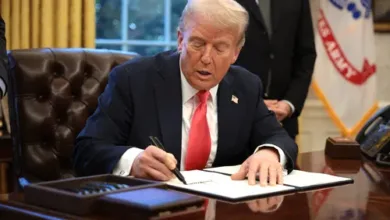Netanyahu Corruption Trial: Bold Testimony Shaping Israel’s Future 2024

The Netanyahu Corruption Trial has reached a critical milestone as Israeli Prime Minister Benjamin Netanyahu takes the stand to address accusations of fraud, breach of trust, and bribery. This moment marks a significant development in the high-profile legal battle that has captured national and international attention since its inception in 2020.
Netanyahu, Israel’s longest-serving leader, has consistently denied any wrongdoing, framing the allegations as politically motivated. His courtroom appearance underscores the intersection of politics and justice, making it one of the most closely watched cases in Israel’s history.

The Charges Against Netanyahu
The trial centers around three key cases, often referred to by their case numbers:
- Case 1000: Accusations of receiving expensive gifts, such as cigars and champagne, from wealthy benefactors in exchange for favors.
- Case 2000: Allegations of negotiating favorable media coverage with a newspaper publisher in return for undermining a rival publication.
- Case 4000: Claims that Netanyahu provided regulatory benefits worth millions to a telecom company in exchange for positive news coverage on its website.
These charges collectively paint a picture of alleged misconduct during Netanyahu’s tenure as prime minister.
Netanyahu’s Defense
Netanyahu and his legal team have vigorously contested the allegations, describing the trial as a politically motivated “witch hunt” aimed at discrediting him. During his testimony, he emphasized that his actions were within the scope of his duties and in Israel’s best interests.
Netanyahu’s defense strategy focuses on:
- Disputing the credibility of key witnesses.
- Highlighting procedural errors during the investigation.
- Asserting that gifts received were part of personal friendships, not bribes.
His courtroom statements reflect an effort to reshape public perception of the trial while maintaining his political base.
Table of Contents
Public and Political Implications
The Netanyahu Corruption Trial has deeply polarized Israeli society. Supporters view the legal proceedings as an attack on a strong leader, while critics argue it reflects the need for accountability among public officials. The trial has also had significant political ramifications:
- It has overshadowed key government priorities, including economic and security issues.
- The proceedings have fueled debates about judicial reform and the independence of Israel’s legal system.
Netanyahu’s leadership remains intact, but the trial’s outcome could have lasting effects on his political career and legacy.
The Trial’s Broader Context
The Netanyahu case is part of a broader global trend where leaders are held accountable for alleged misconduct. From France’s Nicolas Sarkozy to South Africa’s Jacob Zuma, the trial exemplifies the growing role of judicial processes in addressing political corruption. However, it also raises questions about the potential for legal proceedings to be influenced by political agendas.
What’s Next for Netanyahu?
Netanyahu’s testimony is expected to last several weeks, during which his legal team will continue to challenge the prosecution’s claims. The court’s decision, which may take months to finalize, will determine the trajectory of his political career. A conviction could lead to his resignation and reshape the political landscape in Israel.
Netanyahu Corruption Trial: Key Testimonies and Evidence
During the Netanyahu Corruption Trial, the prosecution has presented substantial evidence, including testimonies from close associates and detailed records of transactions. Witnesses have described instances of alleged favoritism and improper exchanges, while Netanyahu’s defense has sought to discredit these claims by highlighting inconsistencies. The court proceedings shed light on the intricate web of interactions between Netanyahu, media moguls, and business executives, forming the basis of the high-profile corruption charges.
Netanyahu Corruption Trial: The Global Implications of the Verdict
The Netanyahu Corruption Trial has drawn international attention, highlighting global concerns about political accountability and judicial independence. As one of the world’s most prominent leaders faces serious allegations, the outcome of the trial could influence how similar cases are approached globally. Allies and critics of Israel alike are closely observing the proceedings, as the verdict may impact diplomatic relations, Israel’s governance, and perceptions of justice in democratic systems.




